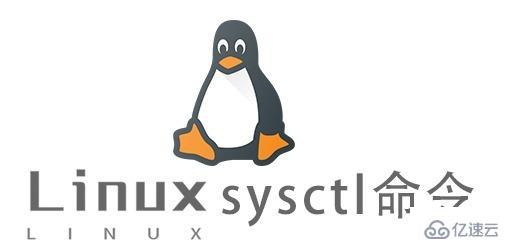您好,登录后才能下订单哦!
今天小编给大家分享一下Linux的sysctl命令怎么使用的相关知识点,内容详细,逻辑清晰,相信大部分人都还太了解这方面的知识,所以分享这篇文章给大家参考一下,希望大家阅读完这篇文章后有所收获,下面我们一起来了解一下吧。
sysctl命令 被用于在内核运行时动态地修改内核的运行参数,可用的内核参数在目录/proc/sys中。

时动态地修改内核的运行参数
它包含一些TCP/ip堆栈和虚拟内存系统的高级选项, 这可以让有经验的管理员提高引人注目的系统性能。用sysctl可以读取设置超过五百个系统变量。
sysctl(选项)(参数) -n:打印值时不打印关键字;
-e:忽略未知关键字错误;
-N:仅打印名称;
-w:当改变sysctl设置时使用此项;
-p:从配置文件“/etc/sysctl.conf”加载内核参数设置;
-a:打印当前所有可用的内核参数变量和值;
-A:以表格方式打印当前所有可用的内核参数变量和值。变量=值:设置内核参数对应的变量值。
查看所有可读变量:
sysctl -a
读一个指定的变量,例如kern.maxproc:
sysctl kern.maxproc kern.maxproc: 1044
要设置一个指定的变量,直接用variable=value这样的语法:
sysctl kern.maxfiles=5000 kern.maxfiles: 2088 -> 5000您可以使用sysctl修改系统变量,也可以通过编辑sysctl.conf文件来修改系统变量。sysctl.conf看起来很像rc.conf。它用variable=value的形式来设定值。指定的值在系统进入多用户模式之后被设定。并不是所有的变量都可以在这个模式下设定。
sysctl变量的设置通常是字符串、数字或者布尔型。(布尔型用 1 来表示’yes’,用 0 来表示’no’)。
sysctl -w kernel.sysrq=0 sysctl -w kernel.core_uses_pid=1 sysctl -w net.ipv4.conf.default.accept_redirects=0 sysctl -w net.ipv4.conf.default.accept_source_route=0 sysctl -w net.ipv4.conf.default.rp_filter=1 sysctl -w net.ipv4.tcp_syncookies=1 sysctl -w net.ipv4.tcp_max_syn_backlog=2048 sysctl -w net.ipv4.tcp_fin_timeout=30 sysctl -w net.ipv4.tcp_synack_retries=2 sysctl -w net.ipv4.tcp_keepalive_time=3600 sysctl -w net.ipv4.tcp_window_scaling=1 sysctl -w net.ipv4.tcp_sack=1编辑此文件:/etc/sysctl.conf
如果该文件为空,则输入以下内容,否则请根据情况自己做调整:
# Controls source route verification # Default should work for all interfaces net.ipv4.conf.default.rp_filter = 1 # net.ipv4.conf.all.rp_filter = 1 # net.ipv4.conf.lo.rp_filter = 1 # net.ipv4.conf.eth0.rp_filter = 1
# Disables IP source routing # Default should work for all interfaces net.ipv4.conf.default.accept_source_route = 0 # net.ipv4.conf.all.accept_source_route = 0 # net.ipv4.conf.lo.accept_source_route = 0 # net.ipv4.conf.eth0.accept_source_route = 0
# Controls the System Request debugging functionality of the kernel kernel.sysrq = 0
# Controls whether core dumps will append the PID to the core filename. # Useful for debugging multi-threaded applications. kernel.core_uses_pid = 1
# Increase maximum amount of memory allocated to shm # Only uncomment if needed! # kernel.shmmax = 67108864
# Disable ICMP Redirect Acceptance # Default should work for all interfaces net.ipv4.conf.default.accept_redirects = 0 # net.ipv4.conf.all.accept_redirects = 0 # net.ipv4.conf.lo.accept_redirects = 0 # net.ipv4.conf.eth0.accept_redirects = 0
# enable Log Spoofed Packets, Source Routed Packets, Redirect Packets # Default should work for all interfaces net.ipv4.conf.default.log_martians = 1 # net.ipv4.conf.all.log_martians = 1 # net.ipv4.conf.lo.log_martians = 1 # net.ipv4.conf.eth0.log_martians = 1
# Decrease the time default value for tcp_fin_timeout connection net.ipv4.tcp_fin_timeout = 25
# Decrease the time default value for tcp_keepalive_time connection net.ipv4.tcp_keepalive_time = 1200
# Turn on the tcp_window_scaling net.ipv4.tcp_window_scaling = 1
# Turn on the tcp_sack net.ipv4.tcp_sack = 1
# tcp_fack should be on because of sack net.ipv4.tcp_fack = 1
# Turn on the tcp_timestamps net.ipv4.tcp_timestamps = 1
# Enable TCP SYN Cookie Protection net.ipv4.tcp_syncookies = 1
# Enable ignoring broadcasts request net.ipv4.icmp_echo_ignore_broadcasts = 1
# Enable bad error message Protection net.ipv4.icmp_ignore_bogus_error_responses = 1
# make more local ports available # net.ipv4.ip_local_port_range = 1024 65000
# set TCP Re-Ordering value in kernel to ‘5′ net.ipv4.tcp_reordering = 5
# Lower syn retry rates net.ipv4.tcp_synack_retries = 2 net.ipv4.tcp_syn_retries = 3
# Set Max SYN Backlog to ‘2048′ net.ipv4.tcp_max_syn_backlog = 2048
# Various Settings net.core.netdev_max_backlog = 1024
# Increase the maximum number of skb-heads to be cached net.core.hot_list_length = 256
# Increase the tcp-time-wait buckets pool size net.ipv4.tcp_max_tw_buckets = 360000
# This will increase the amount of memory available for socket input/output queues net.core.rmem_default = 65535 net.core.rmem_max = 8388608 net.ipv4.tcp_rmem = 4096 87380 8388608 net.core.wmem_default = 65535 net.core.wmem_max = 8388608 net.ipv4.tcp_wmem = 4096 65535 8388608 net.ipv4.tcp_mem = 8388608 8388608 8388608 net.core.optmem_max = 40960如果希望屏蔽别人 ping 你的主机,则加入以下代码:
# Disable ping requests net.ipv4.icmp_echo_ignore_all = 1编辑完成后,请执行以下命令使变动立即生效:
/sbin/sysctl -p /sbin/sysctl -w net.ipv4.route.flush=1以上就是“Linux的sysctl命令怎么使用”这篇文章的所有内容,感谢各位的阅读!相信大家阅读完这篇文章都有很大的收获,小编每天都会为大家更新不同的知识,如果还想学习更多的知识,请关注亿速云行业资讯频道。
免责声明:本站发布的内容(图片、视频和文字)以原创、转载和分享为主,文章观点不代表本网站立场,如果涉及侵权请联系站长邮箱:is@yisu.com进行举报,并提供相关证据,一经查实,将立刻删除涉嫌侵权内容。